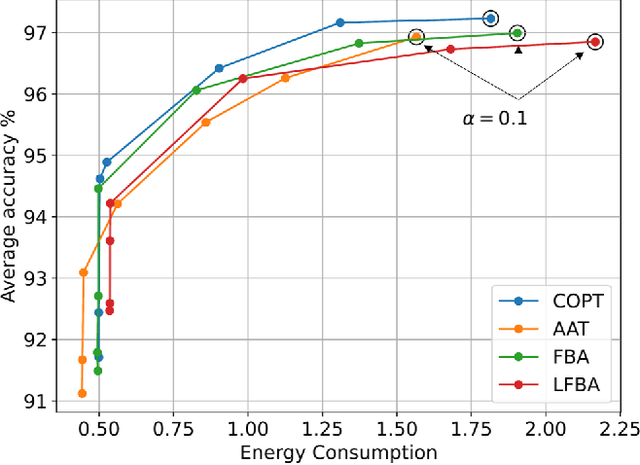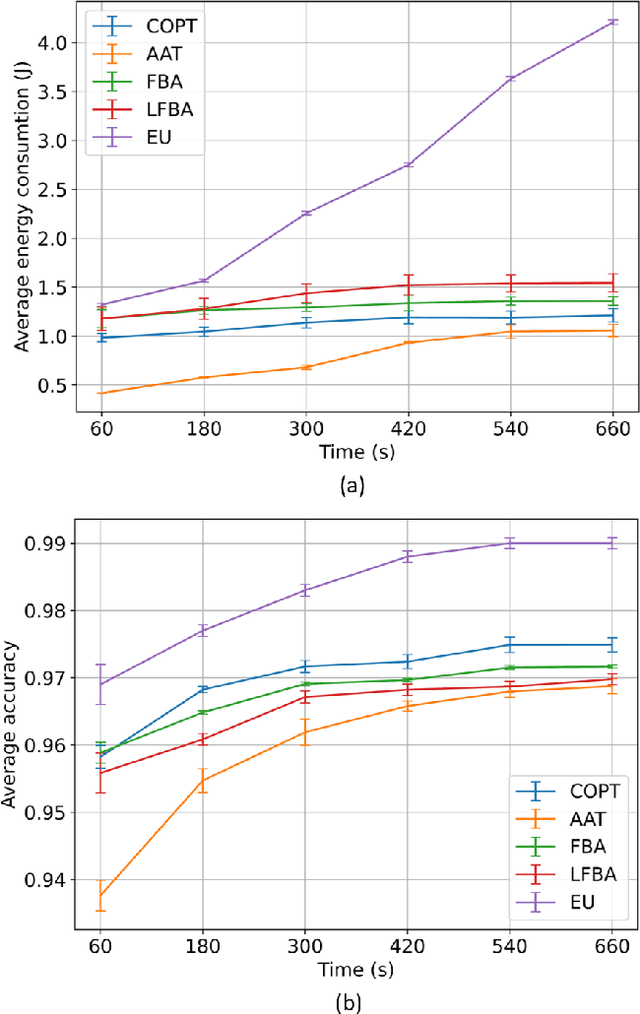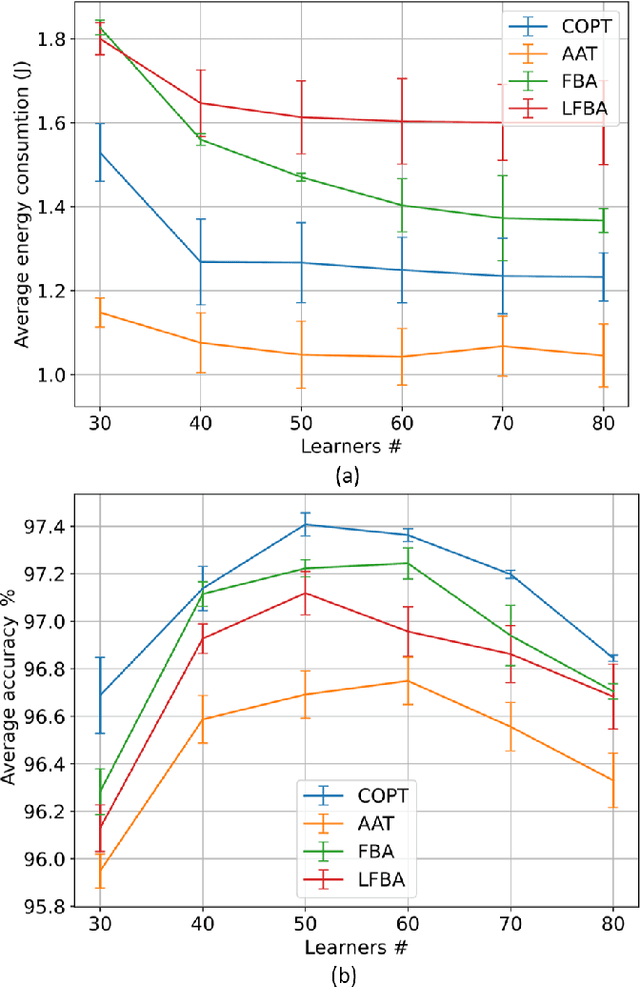Energy-Efficient Multi-Orchestrator Mobile Edge Learning
Paper and Code
Sep 02, 2021



Mobile Edge Learning (MEL) is a collaborative learning paradigm that features distributed training of Machine Learning (ML) models over edge devices (e.g., IoT devices). In MEL, possible coexistence of multiple learning tasks with different datasets may arise. The heterogeneity in edge devices' capabilities will require the joint optimization of the learners-orchestrator association and task allocation. To this end, we aim to develop an energy-efficient framework for learners-orchestrator association and learning task allocation, in which each orchestrator gets associated with a group of learners with the same learning task based on their communication channel qualities and computational resources, and allocate the tasks accordingly. Therein, a multi objective optimization problem is formulated to minimize the total energy consumption and maximize the learning tasks' accuracy. However, solving such optimization problem requires centralization and the presence of the whole environment information at a single entity, which becomes impractical in large-scale systems. To reduce the solution complexity and to enable solution decentralization, we propose lightweight heuristic algorithms that can achieve near-optimal performance and facilitate the trade-offs between energy consumption, accuracy, and solution complexity. Simulation results show that the proposed approaches reduce the energy consumption significantly while executing multiple learning tasks compared to recent state-of-the-art methods.
 Add to Chrome
Add to Chrome Add to Firefox
Add to Firefox Add to Edge
Add to Edge